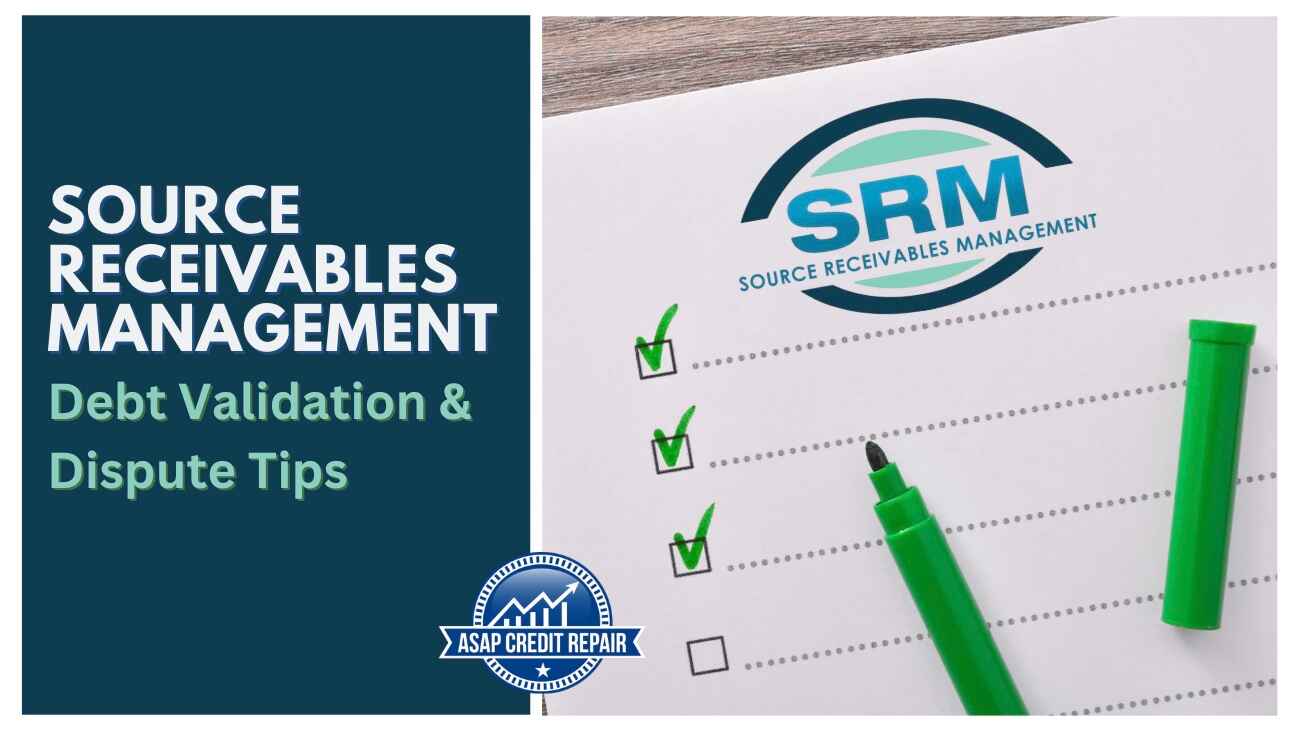Is Source Receivables Management on Your Credit Report?
If Source Receivables Management (SRM) is showing up on your credit report, you might be wondering: Do I really owe this debt? Do I have to pay for it? Can I remove it from my credit report?
The good news? You may not have to pay it—and paying could even hurt your credit score!
👉 Call now to see if you can remove Source Receivables Management from your credit report—without paying the debt!
Understanding Source Receivables Management
Source Receivables Management is a debt collection agency that buys and collects debts across multiple industries, including:
- Medical debt (unpaid hospital or doctor bills)
- Credit card debt (from banks and financial institutions)
- Utility bills (electricity, water, and gas)
They either purchase past-due accounts from original creditors at a discount or collect on behalf of other companies. Either way, their goal is to recover the debt—but that doesn’t mean you have to pay without question.
Why Is Source Receivables Management Calling You?
If Source Receivables Management keeps calling you, it's likely because they bought your debt or were hired to collect it. Their calls could be about:
- Verifying your personal details
- Informing you of a debt in collections
- Pressuring you to make a payment
🚨 Important: You have rights under the Fair Debt Collection Practices Act (FDCPA) to stop unwanted calls and dispute questionable debts.
How to Dispute and Remove Source Receivables Management From Your Credit Report
1. Validate the Debt (You Might Not Owe It!)
Under the Fair Credit Reporting Act (FCRA), you have the right to request debt validation. Here’s how:
- Send a Debt Validation Letter to Source Receivables Management.
- Request proof that the debt is yours and that they have the legal right to collect it.
- If they fail to validate the debt, they must stop collection efforts and remove it from your credit report.
2. Check for Credit Reporting Errors
Debt collectors often report inaccurate or outdated information. Look for these common errors:
- Wrong balance or incorrect payment history
- Duplicate accounts showing the same debt twice
- Debts older than 7 years (which should be removed under the FCRA)
- Fraudulent accounts that you never opened
If you find an error, dispute it with the credit bureaus (Experian, Equifax, TransUnion) to have it removed.
3. Negotiate a Pay-for-Delete Agreement (Only If Necessary)
If the debt is valid but you want it removed, try negotiating a pay-for-delete agreement. This means:
- You agree to pay part (or all) of the debt.
- In exchange, Source Receivables Management removes the account from your credit report.
📌 Warning: Not all debt collectors honor pay-for-delete agreements, so get everything in writing before making a payment.
4. Get Professional Help
If dealing with debt collectors feels overwhelming, consider working with a credit repair service that can:
✅ Challenge inaccurate debt records ✅ Negotiate with creditors for you ✅ Help boost your credit score
👉 Call (888) 656 0803 to speak with a Credit Specialist today!
Can You Remove Source Receivables Management Without Paying?
Yes! Many people successfully remove Source Receivables Management without paying the debt. Here’s how:
- Dispute inaccuracies in your credit report
- Request debt validation (forcing them to prove you owe the debt)
- Challenge expired debts (debts over 7 years should be removed)
Even if you legitimately owe the debt, you still have options to protect your credit score.
Take Action Today!
If Source Receivables Management is damaging your credit score, don’t wait.
📞 Call (888) 656 0803 to speak with a Credit Specialist and find out how you can remove it—without paying the debt!

